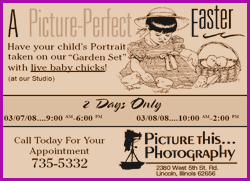General information
-
If you are
eligible to receive a check, all that you have to do is file a
2007 tax return. If you file your return late or apply for an
extension, your payment will be delayed. No checks will be
issued after Dec. 31.
-
The IRS said on
Feb. 15 that it expects to begin mailing checks in May, although
there is still some debate over whether that date can be met.
Payments will continue over several weeks during late spring and
summer. A schedule of when payments will be sent will be
announced in the near future.
-
The IRS will use
your 2007 tax return to determine your eligibility for a payment
and to calculate the amount. Next year your 2008 tax return will
include a worksheet that will reconcile what you received with
what you should have received. In most cases the amounts will be
the same. If not, and your check wasn't for the maximum credit,
it's possible that you may be entitled to an additional amount,
though no one will have to give back anything to the IRS.

-
If you selected a direct-deposit option
for a refund of your 2007 taxes, your rebate check will be
deposited to the same account. If you haven't filed your return,
you still can choose that option. Direct deposit, says the IRS,
is the fastest way to get both regular refunds and your rebate
check.
The amount of your rebate
-
In most cases your
credit will equal the amount of your income tax liability for
2007, up to a maximum amount of $600 for individuals and $1,200
for marrieds filing a joint return.
-
There's an
additional $300 credit for each of your dependent children who
are under the age of 17 at the end of this year. There is no cap
on the number of child-generated credits.
-
Some individuals
who don't usually have to file a tax return may be entitled to
payments. This group includes some recipients of Social
Security, Railroad Retirement or veterans' benefits, as well as
taxpayers who do not make enough money to have to file a return.
These individuals will be eligible to receive a payment of $300,
or $600 for marrieds filing jointly, if they had at least $3,000
of qualifying income in 2007. Qualifying income includes income
from wages and the sources mentioned above. However, these
people must file a 2007 tax return to receive their checks.
[to top of second column]
 |

-
Your credit will
be reduced by 5 percent of the amount that your adjusted gross
income exceeds $75,000, for singles, or $150,000, for marrieds
filing jointly. If you file as a single taxpayer, have no
children and are entitled to the maximum $600 credit, you lose
the credit entirely when your adjusted gross income reaches
$87,000. For marrieds who file a joint return and have no
children, the credit is lost when adjusted gross income reaches
$174,000.
-
Here are two
examples of how the phaseout works:
-
A single
taxpayer has an adjusted gross income of $80,000 and would
qualify for a rebate of $600. But because her adjusted gross
income exceeds $75,000, her rebate is reduced by $250,
determined by multiplying the amount of her adjusted gross
income over $75,000 -- $5,000 -- by 5 percent. The taxpayer will
receive a check for $350.
-
A married
couple have two dependent children under the age of 17 and an
adjusted gross income of $160,000. They would qualify for a
check for $1,800 -- $1,200 for them and an additional $600 for
their two children. But because the couple's adjusted gross
income exceeds $150,000, the rebate is reduced by $500: the
amount of adjusted gross income over $150,000 -- $10,000 --
multiplied by 5 percent. The couple will receive a check for
$1,300.

A warning from the IRS
The IRS will mail two informational notices to you about your
rebate. Any other communication is likely to be a scam. The IRS
never will call or send an e-mail that asks about anything that
might put your identity at risk.
Copyright 2008 M.A. Co. All rights
reserved.
[Text from file received from
Heartland Bank and Trust]
 |